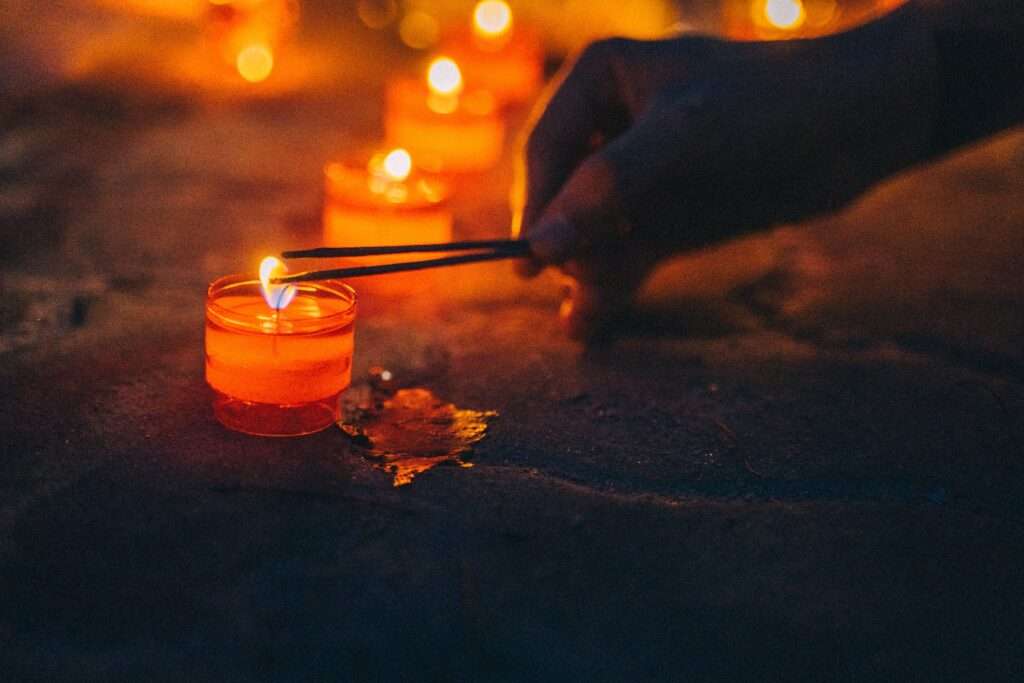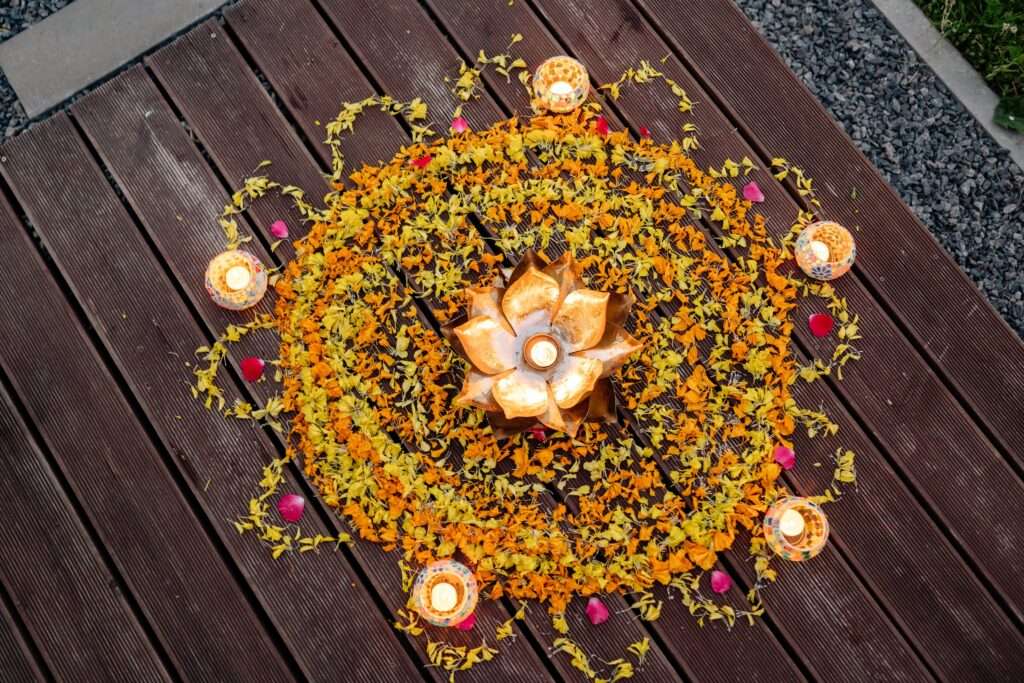Diwali, also known as Deepavali, is one of the most significant and widely celebrated Hindu festivals, illuminating the lives of over a billion people worldwide. This five-day festival of lights, celebrated in the autumn months, holds immense cultural and spiritual value for Hindus, transcending religious boundaries and uniting communities under the radiant glow of diyas (earthen lamps).

Diwali 2023: Important Dates and Days
| Day and Date | Puja Muhurat | Tithi | Festival |
| Friday, November 10, 2023 | 05:27 PM to 07:27 PM | Trayodashi Tithi | Dhanteras |
| Friday, November 10, 2023 | 05:09 PM to 06:26 PM | Trayodashi Tithi | Yama Deepam |
| Saturday, November 11, 2023 | 11:05 PM to 11:56 PM | Chaturdashi Tithi | Choti Diwali |
| Sunday, November 12, 2023 | 05:19 PM to 07:19 PM | Amavasya Tithi | Laxmi Pujan |
| Tuesday, November 14, 2023 | 05:54 AM to 08:09 AM | Pratipada Tithi | Govardhan Puja |
| Wednesday, November 15, 2023 | 12:38 PM to 02:53 PM | Dwitiya Tithi | Bhai Dooj |
The Essence of Diwali
Diwali, derived from the Sanskrit word “Deepavali,” meaning “a row of lamps,” symbolizes the triumph of light over darkness, knowledge over ignorance, and good over evil. It is a time for reflection, renewal, and celebration, a joyous occasion marked by vibrant rituals, heartwarming traditions, and a profound sense of unity.
The Legends and Symbolism of Diwali
Diwali is steeped in rich mythology and legends, each carrying its own unique message and symbolism.
The Return of Lord Rama
One of the most popular Diwali legends is the return of Lord Rama, a revered Hindu deity, to his kingdom of Ayodhya after 14 years of exile. The jubilant people of Ayodhya illuminated the path for Rama’s homecoming with rows of diyas, symbolizing their joy and the victory of good over evil.
The Defeat of Narakasura
Another prominent Diwali legend is associated with Lord Krishna, another revered Hindu deity. Lord Krishna is said to have defeated Narakasura, a demon king who spread darkness and fear. The lighting of diyas on Diwali commemorates this triumph and the restoration of light and hope.
The Significance of Diwali
Diwali is more than just a festival; it is a profound reflection of Hindu values and beliefs. The lighting of diyas represents the illumination of the inner self, dispelling the darkness of ignorance and negativity. It is a time for self-reflection, introspection, and spiritual growth.
The Traditions and Celebrations of Diwali
Diwali is a vibrant tapestry of traditions and celebrations, varying across regions and communities. Some of the common practices include:
- Cleaning and decorating homes: Homes are thoroughly cleaned and adorned with rangoli, intricate designs made from colored powder, to welcome the blessings of Lakshmi, the goddess of wealth and prosperity.
- Lighting diyas: Diyas are small oil lamps that are lit during Diwali. The lamps are said to represent the light of knowledge and the triumph of good over evil.
- Laksmi Puja: Special prayers and rituals are performed to invoke the blessings of Lakshmi, seeking her favor for abundance and prosperity.
- Rangoli: Rangoli are colorful designs that are made on the floor with powdered rice or chalk. The designs are said to represent the beauty and creativity of the human spirit.
- Exchanging gifts and sweets: Friends and family exchange sweets and gifts, fostering bonds of love and togetherness.
- Fireworks and lighting of diyas: Homes and streets are illuminated with diyas, symbolizing the triumph of light over darkness. Fireworks displays add to the festive spirit and excitement.

The Universal Message of Diwali
Diwali’s message extends beyond religious boundaries, resonating with people from all walks of life. It is a universal celebration of hope, positivity, and the enduring power of light to dispel darkness. It is a reminder that within each of us lies the potential for spiritual enlightenment and the power to overcome adversity.
Here are some of the key messages of Diwali:
- The importance of light: Diwali is a celebration of light, both in a literal and figurative sense. The oil lamps that are lit during Diwali symbolize the dispelling of darkness and the triumph of good over evil.
- The importance of knowledge: Diwali is also a celebration of knowledge. The goddess Lakshmi is associated with learning and wisdom, and the festival is a time to reflect on the importance of education and enlightenment.
- The importance of unity: Diwali is a time for Hindus to come together with their families and friends. It is also a time to reach out to others in need and to show compassion and empathy.
Conclusion
Diwali, the festival of lights, is a beacon of hope and inspiration, reminding us of the inherent goodness within ourselves and the world around us. It is a time to celebrate the triumph of light over darkness, knowledge over ignorance, and good over evil. As the diyas illuminate our homes and communities, may they also illuminate our hearts and minds, guiding us towards a brighter and more harmonious future.
Additional Thoughts and Insights
- Diwali is not just a festival of joy and celebration; it is also a time for introspection and self-reflection. It is a reminder of the importance of inner light and the power to dispel the darkness within ourselves.
- Diwali is a time to strengthen bonds with family and friends. It is a reminder of the importance of community and togetherness.
- Diwali is a time to give back to those in need. It is a reminder of the importance of compassion and generosity.
- Diwali is a time to celebrate diversity and unity. It is a reminder that we are all connected and that we can all learn from each other.
I hope this post has provided you with a deeper understanding of Diwali, its significance, and its universal message. May the light of Diwali illuminate your path and bring you joy, peace, and prosperity.







